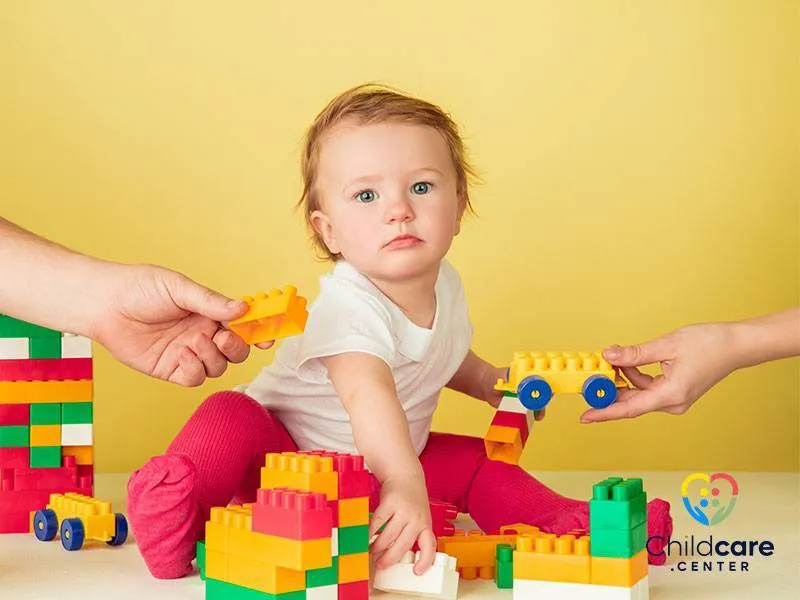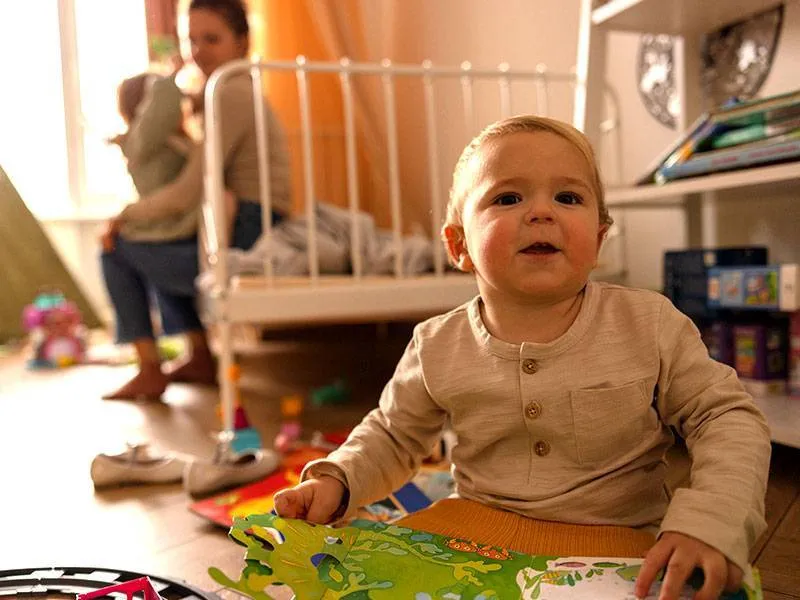Day Care vs. Nanny: Which One’s Right for You?

When it comes to choosing a childcare provider for your children, it's a decision that can have a significant impact on their well-being and development. Two of the most popular options are daycare centers and employing a nanny. Both daycare and nanny services offer excellent childcare, but each has its unique advantages and considerations to keep in mind. Deciding which option is right for you and your family requires careful consideration of your specific needs, lifestyle, and the needs of your child.
Daycare centers provide a structured and social environment where children have the opportunity to interact with their peers and participate in various activities. These facilities are equipped with qualified staff members who can create a safe and stimulating environment for children to learn and grow. The regulated nature of daycare centers ensures that certain standards are met, providing parents with peace of mind.
On the other hand, hiring a nanny offers the advantage of personalized care and attention. With a nanny, your child can receive one-on-one interaction and focus, tailored to their specific needs. Nannies can offer a nurturing and familiar environment within the comfort of your own home, maintaining consistency and routine that may be particularly beneficial for younger children or those with special needs.
Making the decision between daycare and a nanny requires careful consideration of various factors such as cost, availability, flexibility, and the preferences and values of your family. It's important to weigh the benefits and drawbacks of each option to make an informed decision that aligns with your unique circumstances.
Day Care Pros and Cons
Enroll in daycare center Pros
- Certified, licensed caregivers: licensing helps to ensure that daycare centers meet certain standards of safety and security. These facilities must pass background checks on all Caretakers before they are allowed to care for children. They must also meet government regulations regarding health and safety, as well as follow specific educational policies in order to remain open. In addition, the staff is required to receive ongoing training in order to provide the best possible care for families’ little ones. These measures ensure that parents can feel confident when leaving their child in the care of others.

- An organized schedule and place: Daycares offer a secure environment where children can learn and play without fear of danger or distraction. Parents can be sure that their child is safe while at daycare, as most facilities employ staff with specialized training in child care matters. In addition, the hours of operation at daycares are generally quite structured, providing consistency for both the children attending and their families. This allows parents to plan ahead for pick-up and drop-off times each day, allowing them to better manage their schedules accordingly.
- Check-ins or monitoring can be done online: One of the major advantages is that many facilities now offer online check-ins and monitoring for peace of mind for parents. This means that parents can check on their children’s progress during the day without having to be physically present at the facility. Some facilities even allow parents to visit their child remotely via an online monitor so they can still be a part of their child’s daily routine while they are away at work or doing errands. This is especially beneficial for working parents who may not have time to physically visit but still want assurance that their little one is safe and secure in their care.

- Interacting with and developing social skills: In daycare, babies interact with both adults and other children which helps them to develop important social skills. It's the perfect environment for babies to learn how to share, take turns and practice problem-solving in situations where they may not be successful at first. Every child is different; some may take longer than others before they become comfortable interacting with their peers. In a positive environment, daycare can benefit your child's growth and development.
- Focuses on early childhood education: Providing a safe, nurturing environment with qualified caregivers and an emphasis on early childhood education, child care centers are becoming increasingly popular for parents seeking quality early education for their children. These centers provide more than just basic child-care services; they also focus on introducing children to the fundamentals of academics such as counting, identifying colors and shapes, and reading. Although pre-K classes have become more widely available in public schools, Care facilities typically offer more individualized attention that allows kids to get ahead of the curve in terms of learning.
- Safety and cleanliness: Daycare centers are typically regulated and have to pass safety and cleanliness inspections. Daycares must comply with certain standards, such as having an adequate number of supervisors on duty at all times, providing proper nutrition, ensuring that play equipment is up-to-date and properly maintained, and implementing strict health policies. By doing so, daycares can help keep kids safe no matter what kind of activities they are participating in while at the center.

Enroll in daycare center cons
- High turnover: The importance of having a secure, nurturing environment for a child who is in daycare cannot be overstated. High turnover can mean that the daycare staff and Caretakers are not as consistent and familiar with the infant or child as they could be. This lack of stability can be detrimental to the baby's development, as it is important for them to have familiar figures around them when they are so young.

- Structured hours: One of the biggest drawbacks is their structured hours. While this can be an advantage for some families, it can also be very inconvenient for others. When children attend daycare, they must arrive within a certain time frame and must also be picked up at a specified time each evening. This can create problems if parents need to stay late at work or run errands without their kids - they will not be able to drop off the children later than usual or leave them in the facility after closing time. In addition, most daycares charge late fees if pick-up times are exceeded by even a few minutes so that could add up quickly over time.

- Not available to sick kids: Unfortunately, daycare centers have strict sick policies that can leave some parents stranded when their child is too ill to attend. On one hand, these rules are necessary for protecting the health of all of the children attending the center, but on the other hand, it can create problems for working parents who find themselves without childcare options.
However, some daycare centers may offer sick care services for children who are mildly ill, allowing parents to continue working without worry.
- increased likelihood of accidents: Accidents are common in daycare settings due to the high concentration of young children and limited staff members available for supervision. Bites or falls are often reported after visits to nursery school or daycare centers as several kids may be vying for attention from adults or playing together without proper guidance. Parents should talk to their child's care provider about safety measures that have been implemented such as staggered playtime schedules, age-appropriate toys, and active monitoring by Caretakers.
- Cost: Care for children can be a difficult expense for parents to fit into their budgets. The cost varies drastically depending on the location and type of facility chosen. In-home daycare centers typically charge less than large facilities, however, it can still be an expensive choice when compared to other options like having a relative look after the child at home. Some states offer assistance programs to help offset these costs but they may not cover all circumstances or locations, leaving parents with a hefty bill in some cases. Additionally, some facilities charge additional fees like registration fees or drop-in rates, making them even more costly than expected. To estimate the cost of daycare services in Canada please read the "How much is the cost of daycare in Toronto ?" article. It gives you a bright view of the cost and how to manage it.
Pros and Cons of Hiring a Nanny
Nannies are an invaluable resource for busy parents who want to provide their children with the best possible care. A nanny is a childcare provider who comes to your home and takes care of your child according to an agreed-upon schedule.
They usually have years of experience in caring for infants and toddlers, meaning that you can rest easy knowing that your child is in good hands. Nannies will often develop strong bonds with the family they work with, providing them not only with superior care but also a personal connection. Having a nanny means that you can trust someone else to take responsibility for caring for your baby while you are away or otherwise occupied. Nannies may take on tasks like preparing meals, helping out with housework, playing educational games with children, and giving baths as needed.

Benefits of Hiring a Nanny
- customizable schedule: One of the main benefits of hiring a nanny is that you can customize your schedule according to your needs. Since the nanny works directly for you, they will be able to accommodate any kind of timetable and provide essential childcare services when needed.

- Personalized care and attention: A nanny provides personalized care and attention tailored to your child's needs. With their sole focus on your child, parents can have peace of mind about their well-being. Nannies may offer additional educational activities or tutoring, depending on their skills. They also offer flexibility and the convenience of caring for your child in the comfort of your own home, eliminating the stress of daycare drop-offs and pickups.
- Roles and responsibilities: A nanny provides more than just child care; they can also provide additional duties that will help alleviate some of the stress from a busy family's life. When hiring a nanny, one of the biggest advantages is that you get to decide what their duties entail. This means that you can tailor your expectations based on your individual needs, whether it’s light household tasks such as meal prep or grocery shopping or even larger errands like running to the post office.

- Consistent Care: Nannies offer long-term care from birth until school age, ensuring continuity and consistency. This is advantageous for families with multiple children, as they all receive consistent care from the same person. The established relationship between the nanny and each child fosters trust and security, vital for healthy child development. Nannies provide ongoing support and guidance to parents on various parenting topics while building lasting relationships with the children they care for.
Drawbacks of Hiring a Nanny
- Parenting Style Conflicts: If there are disagreements about discipline, sleeping, or other issues related to parenting, it can cause conflict between you and your hired help. This can lead to tension in the household which isn't ideal for either party.To avoid these conflicts, it is important to establish clear communication and expectations upfront, and to regularly check in with your nanny to ensure that you are both on the same page. Additionally, some nannies may have different cultural backgrounds or beliefs, which can also lead to conflicts if not addressed properly.

- Cost: Nanny costs vary depending on location, the number of kids, and other factors like the experience of the caregiver. On average, however, it’s estimated that families will pay more than twice what they would pay for daycare centers or in-home care providers. Additionally, nannies are often hired at an hourly rate or as live-in help which means that costs can quickly stack up if parents need extra hours outside of their work schedules.
- tardiness: If the nanny is late, it could throw off your schedule and disrupt the day for both you and your children. This could lead to stress and feelings of helplessness when it comes to managing their caretaker’s responsibilities. Additionally, if the nanny is consistently late, it may indicate that they are unreliable or not invested in their job as much as they should be. This could cause further issues with children’s routines, well-being, and emotional needs. Clear expectations and communication about punctuality can prevent tardiness from disrupting schedules and causing stress, and having a backup plan can also help mitigate any issues.

- No Coverage for Sick Time: This can create an inconvenience for parents since they may be required to stay home if their nanny gets sick or needs a day off. Some parents may choose to hire another backup person in case their regular nanny has a sudden need for time off, however, this adds another expense and will require more effort expended in finding someone reliable and trustworthy. Additionally, if the family needs to go out of town on vacation or business, hiring another Caretaker from afar can prove difficult and expensive as well.
There are no regulations:Hiring a nanny comes with potential concerns as they are not regulated or required to have specialized certifications in child development. This lack of oversight raises worries about the quality of care they can provide. It's challenging to verify their experience or understanding of children's specific needs and safety requirements for different age groups. Moreover, without industry regulations, there's no guarantee of their trustworthiness and responsibility in caring for your children.

How I Know I Made the Right Choice About a Nanny vs. Daycare?
When choosing between a nanny and daycare, it's important to consider your family's needs and priorities. If you are looking for more personalized care for your child, then a nanny may be the better option since there will be fewer other children in the home. On the other hand, if you need more flexibility or have a tight budget, daycare might be the better choice. Additionally, think about how much interaction with other children is important and if you'd like them to have consistent caretakers throughout the day. Make sure to factor in any health concerns that may require special attention as well. In either case, take time to research any potential providers thoroughly before making a decision - references, experience levels and certifications should all be taken into account. Your priority should always be providing the best possible care for your child.

Fortunately, there is now an easy way to save time and energy with the help of childcare center website. This website provides a comprehensive list of daycare providers that meet your expectations and preferences. Parents simply need to enter their location and desired services, such as part-time or full-time care, etc., in order to receive accurate results about what type of childcare services are available in their area.

Additionally, users have access to extensive reviews from other parents regarding their experiences with each provider listed on the site so they can make an informed decision when it comes to selecting a quality daycare provider that meets all their needs while also staying within budget with childcare. Ultimately, the right choice will depend on what is most important to you and your family. It may be helpful to visit both options, ask for references, and review policies, to help you make an informed decision.
Conclusion: Day Care or Nanny?
The decision between daycare and a nanny ultimately depends on the family's individual needs and preferences. As with any important decision, parents should take their time to properly evaluate all their options before making the final choice. It is important to consider both the benefits and detrimental aspects of each option as well as how they fit in with each other's lifestyle. Additionally, it is important to find a daycare or nanny who is properly qualified and experienced.








